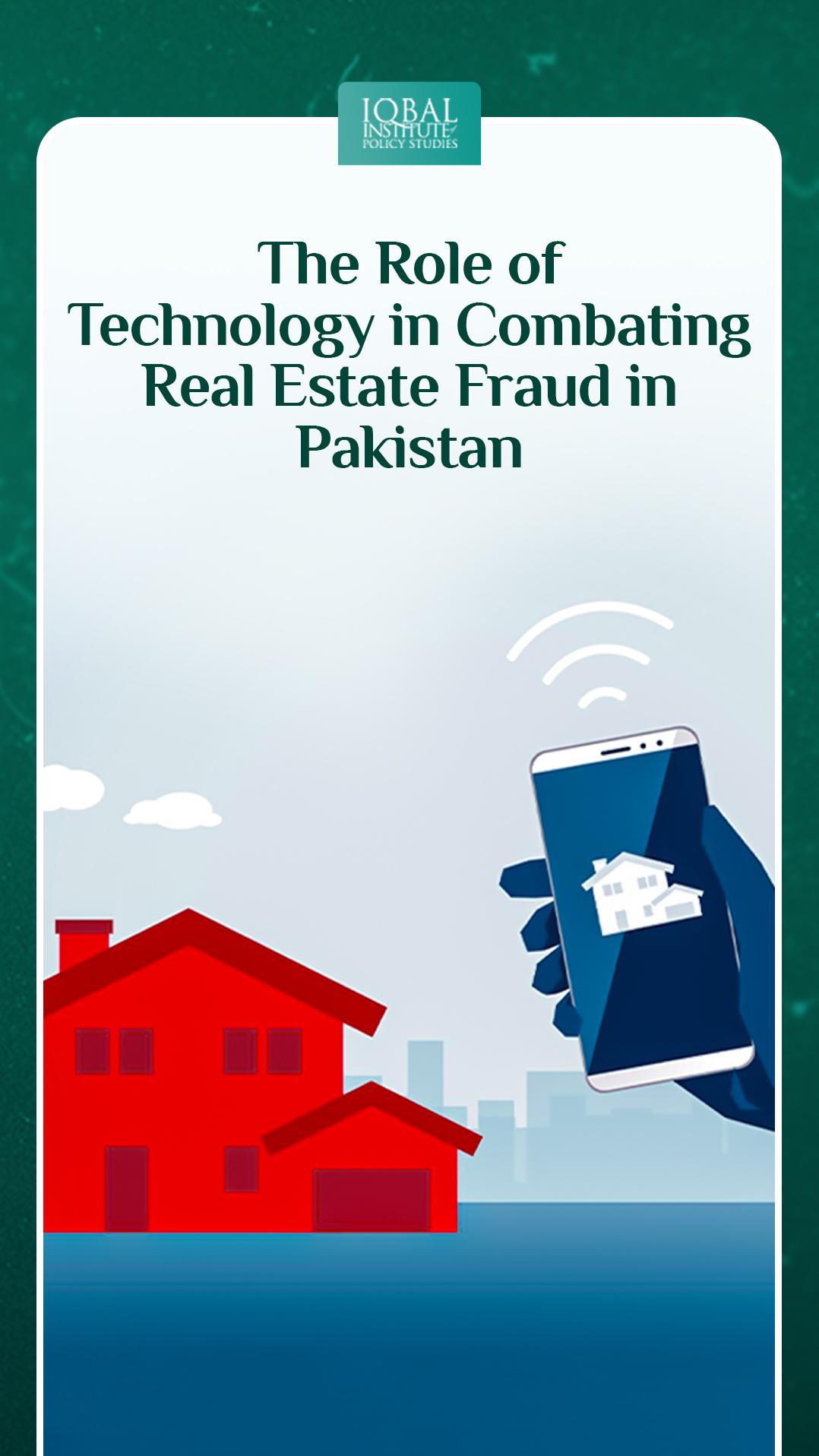Pakistan’s real estate sector stands as a vital driver of economic growth, reflecting a dynamic landscape that has expanded significantly in recent years. However, with growth comes the inevitable challenge of combating fraudulent activities within the industry. In the contemporary era of technological prowess, the role of cutting-edge technologies in fortifying the real estate sector against fraud is a critical aspect that demands in-depth analysis. This comprehensive blog aims to delve deeply into the multifaceted ways in which technology is playing a pivotal role in combating real estate fraud in Pakistan, spanning the realms of blockchain, artificial intelligence (AI), electronic document verification, and geographic information system (GIS) technology.
Blockchain Technology: Revolutionizing Property Transactions
Blockchain, renowned as the foundational technology behind cryptocurrencies, is poised to redefine how property transactions are conducted in Pakistan. Its decentralized and tamper-resistant nature provides an unparalleled level of security, mitigating the risk of document forgery and establishing a transparent and immutable ledger of ownership.
In the context of Pakistan’s real estate, implementing blockchain in property transactions ensures transparency and reduces the risk of fraudulent activities. Smart contracts, powered by blockchain, automate and execute property transactions under predefined conditions, streamlining the process and minimizing the involvement of intermediaries. This not only enhances efficiency but also reduces the chances of fraudulent activities.
Furthermore, the integration of blockchain into property registries can transform how ownership records are maintained, offering a trustworthy and unalterable record of property ownership that is resistant to manipulation.
Artificial Intelligence (AI) and Machine Learning (ML): The Guardians of Fraud Detection
AI and ML technologies bring a new dimension to fraud detection in Pakistan’s real estate sector. By analyzing vast datasets, these technologies can identify patterns indicative of fraudulent activities. In the context of property transactions, AI-powered algorithms scrutinize transactions, flagging anomalies and suspicious behavior that may indicate fraudulent intent.
Identity verification processes are also fortified with AI, making it significantly harder for fraudsters to manipulate personal information. Facial recognition and biometric authentication, integrated into property transactions, add an extra layer of security, ensuring that individuals involved in transactions are legitimate.
Electronic Document Verification: The Shift from Paper to Pixels
The move from paper-based documentation to electronic records is a crucial step in preventing real estate fraud in Pakistan. Electronic document verification systems streamline the process of verifying the authenticity of property documents efficiently. Digital signatures, encrypted documents, and secure online platforms contribute to a more secure and transparent documentation process.
Online portals for document submissions and verifications reduce the risk of forged documents, offering a secure environment for stakeholders. Real-time updates on property transactions ensure that all parties have access to the latest and accurate information, minimizing the chances of fraudulent activities.
Geographic Information System (GIS) Technology: Navigating Spatial Data for Security
GIS technology emerges as a powerful tool in mapping and analyzing spatial data related to real estate in Pakistan. It can be leveraged to monitor and manage land use, identify illegal constructions, and detect encroachments. The integration of GIS with property databases allows authorities to visualize and analyze data, making it easier to identify discrepancies and potential fraudulent activities.
Detailed property maps created with GIS technology aid buyers in making informed decisions and help authorities monitor and regulate land use more effectively, reducing opportunities for fraudulent activities.
Conclusion
As Pakistan’s real estate sector continues its evolution, the integration of technology becomes not just a choice but a necessity. Embracing these technological advancements fortifies Pakistan’s real estate sector, instilling confidence among investors, buyers, and stakeholders and paving the way for sustainable growth in the industry. By staying at the forefront of technological innovation, Pakistan can navigate the challenges of a rapidly evolving real estate landscape with resilience and foresight.
This article is written by Radma Nouman. Radma is a research analyst at the Iqbal Institute of Policy Studies (IIPS).



Leave a Reply